Politics
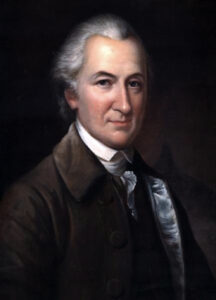
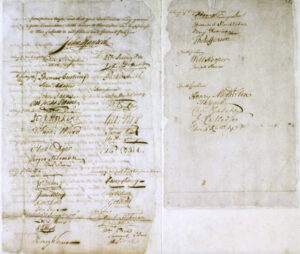 The American Revolutionary War actually began on April 19, 1775, with the Battles of Lexington and Concord. At that time, it wasn’t considered a full-blown war, and attempts were still being made by July 5, 1775, to avoid that full-blown war. The Olive Branch Petition, adopted by the Second Continental Congress on July 5, 1775, and signed on July 8th, was the final attempt to avoid the full-blown war between Great Britain and the Thirteen Colonies in America, that became known as the American Revolutionary War, and ended with full independence of the United States.
The American Revolutionary War actually began on April 19, 1775, with the Battles of Lexington and Concord. At that time, it wasn’t considered a full-blown war, and attempts were still being made by July 5, 1775, to avoid that full-blown war. The Olive Branch Petition, adopted by the Second Continental Congress on July 5, 1775, and signed on July 8th, was the final attempt to avoid the full-blown war between Great Britain and the Thirteen Colonies in America, that became known as the American Revolutionary War, and ended with full independence of the United States.
It seemed that in the early days of the Revolutionary War, the main weapon was a volley of petitions and proclamations. The Second Continental Congress had already authorized the invasion of Canada more than a week earlier, but the Olive Branch Petition affirmed American loyalty to Great Britain, asking King George III to prevent further conflict. The petition was followed up with a July 6th Declaration of the Causes and Necessity of Taking Up Arms, making the success of the Olive Branch Petition unlikely in London. By August 1775, London officially declared the colonies to be in rebellion by the Proclamation of Rebellion, and the Olive Branch Petition was rejected by the British government. In fact, King George had refused to read it before declaring that the colonists were traitors.
The Second Continental Congress convened in May 1775. At that time, most and most delegates followed John Dickinson in his quest to reconcile with King George. He could not picture a world with an independent United States. I suppose there are always those people without a vision for the future. However, there was a small group of delegates, led by John Adams, who could see that war was inevitable, and that we would need to become independent of Great Britain. Nevertheless, there is a right time, so they decided that the wisest course of action was to remain quiet and wait for the opportune time to rally the people. This allowed Dickinson and his followers to pursue their own course for a reconciliation that would ultimately never happen.
Dickinson was the primary author of the Olive Branch Petition, along with Benjamin Franklin, John Jay, John Rutledge, and Thomas Johnson, all of whom also served on the drafting committee. Dickinson claimed that the colonies did not want independence, but rather, wanted more equitable trade and tax regulations. He asked that the King establish a lasting settlement between the Mother Country and the colonies “upon so firm a basis as to perpetuate its blessings, uninterrupted by any future dissensions, to succeeding generations in both countries” beginning with the repeal of the Intolerable Acts. The introductory paragraph of the letter named twelve of the thirteen colonies, all except Georgia. The letter was approved on July 5 and signed by John Hancock, President of the Second Congress, and by representatives of the named twelve colonies. It was sent to London on July 8, 1775, in the care of Richard Penn and Arthur Lee. Dickinson hoped that news of the Battles of Lexington and Concord combined with the “humble petition” would persuade the King to respond with a counterproposal or open negotiations.
Finally, Adams wrote to a friend, telling him that the petition served no purpose. Everyone knew that war was inevitable. Adams said that the colonies should have already raised a navy and taken the British officials prisoner. Unfortunately, the letter was intercepted by British officials and news of its contents reached Great Britain at about the same time as the petition itself. British advocates of a military response used Adams’ letter to claim that the petition itself was insincere, and it was rejected. The hostilities which Adams had foreseen undercut the petition, and the King had answered it before it even reached him.
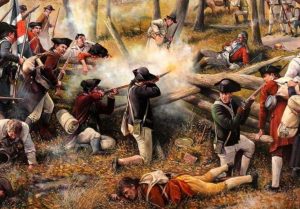
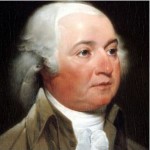
With the King’s refusal to consider the petition, came the opportunity Adams and others needed to push for independence. Now the colonists viewed the King as unwilling and uninterested concerning the colonists’ grievances. The colonists finally knew that they had just two choices…complete independence or complete submission to British rule. They chose complete independence, and the rest, as we all know, is history.
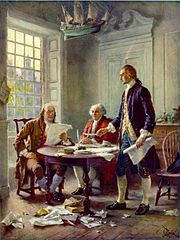
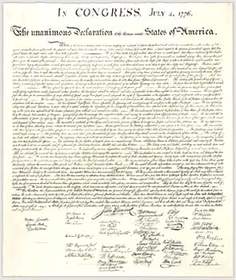 While Independence Day is celebrated on July 4th each year, with all the festivities, days off, barbecues, and fireworks, our nation…formally known as the thirteen colonies, actually obtained legal separation from Great Britain on July 2, 1776, when the Second Continental Congress voted to approve a resolution of independence that had been proposed in June by Richard Henry Lee of Virginia declaring the United States independent from Great Britain’s rule. Called the Lee Resolution, it was also known as “The Resolution for Independence” and was the formal assertion passed by the Second Continental Congress on July 2nd. The Lee Resolution resolved that the Thirteen Colonies, at the time referred to as the United Colonies, were “free and independent states” and were now separate from the British Empire. The resolution created what became the United States of America.
While Independence Day is celebrated on July 4th each year, with all the festivities, days off, barbecues, and fireworks, our nation…formally known as the thirteen colonies, actually obtained legal separation from Great Britain on July 2, 1776, when the Second Continental Congress voted to approve a resolution of independence that had been proposed in June by Richard Henry Lee of Virginia declaring the United States independent from Great Britain’s rule. Called the Lee Resolution, it was also known as “The Resolution for Independence” and was the formal assertion passed by the Second Continental Congress on July 2nd. The Lee Resolution resolved that the Thirteen Colonies, at the time referred to as the United Colonies, were “free and independent states” and were now separate from the British Empire. The resolution created what became the United States of America.
After passing the vote for independence, Congress could turn its attention to the Declaration of Independence, which would be the official statement explaining this decision. The Declaration of Independence had been prepared by a Committee of Five, with Thomas Jefferson as its principal author. While Jefferson collaborated extensively with the other four members of the Committee of Five, i,t was largely his writing and his wording that made up the Declaration of Independence. It was composed in isolation over 17 days between June 11, 1776, and June 28, 1776. Jefferson was renting the second floor of a three-story private home at 700 Market Street in Philadelphia at the time. The house, within walking distance of Independence Hall, is now known as the Declaration House.
Of course, as with any document brought before Congress, they debated and revised the wording of the Declaration, and for reasons unknown, removed wording in which Jefferson had vigorously denounced King George III for importing the slave trade. They finally approved the document two days later on July 4th. John 

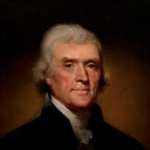 Adams wrote a letter to his wife, Abigail, on July 3rd, stating, “The second day of July 1776, will be the most memorable epoch in the history of America. I am apt to believe that it will be celebrated by succeeding generations as the great anniversary festival. It ought to be commemorated as the day of deliverance, by solemn acts of devotion to God Almighty. It ought to be solemnized with pomp and parade, with shows, games, sports, guns, bells, bonfires, and illuminations, from one end of this continent to the other, from this time forward forever more.”
Adams wrote a letter to his wife, Abigail, on July 3rd, stating, “The second day of July 1776, will be the most memorable epoch in the history of America. I am apt to believe that it will be celebrated by succeeding generations as the great anniversary festival. It ought to be commemorated as the day of deliverance, by solemn acts of devotion to God Almighty. It ought to be solemnized with pomp and parade, with shows, games, sports, guns, bells, bonfires, and illuminations, from one end of this continent to the other, from this time forward forever more.”
Of course, as we all know, Adams’s prediction was off by two days. Nevertheless, his idea that a day should be celebrated forever, did become a tradition, not on July 2nd, but rather on July 4th, because of the Declaration of Independence. That was because of the date shown on the much-publicized Declaration of Independence, rather than the date the resolution of independence was approved in a closed session of Congress. In addition, historians have disputed whether members of Congress signed the Declaration of Independence on July 4th, even though Thomas Jefferson, John Adams, and Benjamin Franklin all later wrote that they had signed it on that day. Many historians believe that the Declaration was signed nearly a month after its adoption, on August 2, 1776, and not on July 4th as many have believed. Nevertheless, they have been unable to prove their theory or to change the date on which we celebrate our independence.
One thing that I find very interesting is the fact that both Thomas Jefferson and John Adams, who were the only two signatories of the Declaration of Independence later to serve as presidents of the United States, both 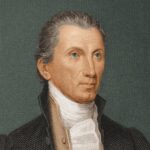
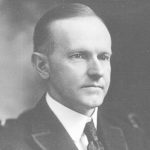 died on the same day…July 4, 1826, and within five hours of each other. They were also the last surviving members of the original American revolutionaries. It was also the 50th anniversary of the Declaration of Independence. James Monroe, while not a signatory of the Declaration of Independence, but who was another Founding Father who was elected president, also died on July 4, 1831, making him the third President who died on the anniversary of independence. There was one president who was born on Independence Day…Calvin Coolidge, who was born on July 4, 1872.
died on the same day…July 4, 1826, and within five hours of each other. They were also the last surviving members of the original American revolutionaries. It was also the 50th anniversary of the Declaration of Independence. James Monroe, while not a signatory of the Declaration of Independence, but who was another Founding Father who was elected president, also died on July 4, 1831, making him the third President who died on the anniversary of independence. There was one president who was born on Independence Day…Calvin Coolidge, who was born on July 4, 1872.
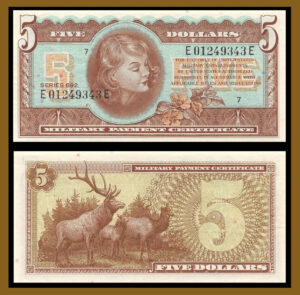 During World War II, and through the Vietnam War, the United States government was facing a situation with the US dollar that was different from prior years. It’s not something we really think about much, but it had to do with the fact that the countries the US Military was in were unsure of how their money was going to play out if they were one of the countries that fell. The dollar was stable, so they were happy to take payment in the US dollar over their own currency. In fact, the local civilians often accepted payment in dollars for less than the accepted conversion rates, meaning that they lost money in the deal. Dollars became more favorable to hold, which further inflated the local currencies, defeating plans to stabilize local economies. On top of that, troops were being paid in dollars, which they could
During World War II, and through the Vietnam War, the United States government was facing a situation with the US dollar that was different from prior years. It’s not something we really think about much, but it had to do with the fact that the countries the US Military was in were unsure of how their money was going to play out if they were one of the countries that fell. The dollar was stable, so they were happy to take payment in the US dollar over their own currency. In fact, the local civilians often accepted payment in dollars for less than the accepted conversion rates, meaning that they lost money in the deal. Dollars became more favorable to hold, which further inflated the local currencies, defeating plans to stabilize local economies. On top of that, troops were being paid in dollars, which they could 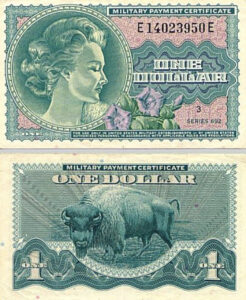 convert in unlimited amounts to the local currency with merchants at the floating (black market) conversion rate, which was much more than the government fixed conversion rate. It was rather a great money-making proposition, but really wasn’t ethical. This conversion rate imbalance allowed the servicemen to profit from the more favorable exchange rate.
convert in unlimited amounts to the local currency with merchants at the floating (black market) conversion rate, which was much more than the government fixed conversion rate. It was rather a great money-making proposition, but really wasn’t ethical. This conversion rate imbalance allowed the servicemen to profit from the more favorable exchange rate.
While anyone could understand how people would want to make money if they can, it was really going to be damaging to the local economy in the end. The MPCs were designed to stop the unfair conversion rate of currency. The scrip (MOCs) was changed out periodically, to avoid hoarding. Once they came out with a new version of scrip, the prior version became worthless. Another way they were supposed to eliminate the problem was that MPCs were only allowed to be used by military personnel in military facilities and approved locations. As a safeguard, if the MPCs  were converted to local currency, they were not allowed to be reconverted to MPCs, so the plan was useless. US MPCs were in use from 1946-1973 and were used in all overseas military locations.
were converted to local currency, they were not allowed to be reconverted to MPCs, so the plan was useless. US MPCs were in use from 1946-1973 and were used in all overseas military locations.
I was actually watching an episode of MASH this morning about this very thing. The men were buying up the old scrip from people who couldn’t get to the exchange. Of course, they bought it for less than its value, planning to cash in when they turned it in for its face value. The solution for that problem was that the military personnel were restricted to the base on C-Days…currency exchange days. I don’t know how much of the fraudulent exchanges were stopped in this way, but it might have stopped some.

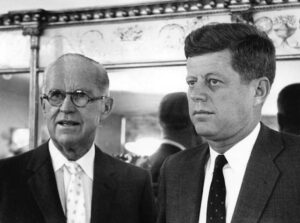 It’s not often that a young man “pulls strings” in order to go to war. Most men would rather not go to war, and some will even try to “pull strings” to get out of going. John F Kennedy, who had some health problems, and an old back injury from his college football days, was turned down for the Navy, but his dad managed to pull some strings for his son, who really wanted to go into the navy. Young was desperate, and like most parents, his father wanted to help fulfill that dream. So in 1941, Kennedy’s politically connected father, Joseph Kennedy used his influence to get his sin, John “Jack” into the service. Of course, Joseph might have been thinking ahead to future political maneuvers when he pushed for a military career for his son. Once in the Navy, Kennedy volunteered for PT (motorized torpedo) boat duty in the Pacific in 1942.
It’s not often that a young man “pulls strings” in order to go to war. Most men would rather not go to war, and some will even try to “pull strings” to get out of going. John F Kennedy, who had some health problems, and an old back injury from his college football days, was turned down for the Navy, but his dad managed to pull some strings for his son, who really wanted to go into the navy. Young was desperate, and like most parents, his father wanted to help fulfill that dream. So in 1941, Kennedy’s politically connected father, Joseph Kennedy used his influence to get his sin, John “Jack” into the service. Of course, Joseph might have been thinking ahead to future political maneuvers when he pushed for a military career for his son. Once in the Navy, Kennedy volunteered for PT (motorized torpedo) boat duty in the Pacific in 1942.
“Jack” Kennedy quickly worked to move himself up in rank, and soon he was Lieutenant John F. Kennedy. July 1943 found Lieutenant Kennedy and the crew of PT 109 in combat near the Solomon Islands. People often think that being in the Navy or the Air Force is somehow safer than the Army or Marines, but the reality is that any position in a war 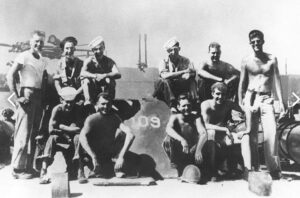
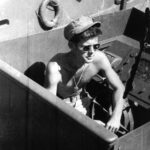 can prove to be dangerous. On August 2, 1943, the middle of the night, Kennedy’s boat was rammed by a Japanese destroyer and caught fire. In the ensuing explosion, several of Kennedy’s shipmates were blown overboard into a sea of burning oil. With no regard for his own life, Kennedy dove in to rescue three of the crew and in the process swallowed some of the toxic mixture. Kennedy always blamed his chronic stomach problems on that incident. The ordeal was not quickly over, and for 12 hours, Kennedy and his men clung to the wrecked hull. Finally, he ordered them to abandon ship. Kennedy and the other good swimmers placed the injured on a makeshift raft. They took turns pushing and towing the raft four miles to safety on a nearby island.
can prove to be dangerous. On August 2, 1943, the middle of the night, Kennedy’s boat was rammed by a Japanese destroyer and caught fire. In the ensuing explosion, several of Kennedy’s shipmates were blown overboard into a sea of burning oil. With no regard for his own life, Kennedy dove in to rescue three of the crew and in the process swallowed some of the toxic mixture. Kennedy always blamed his chronic stomach problems on that incident. The ordeal was not quickly over, and for 12 hours, Kennedy and his men clung to the wrecked hull. Finally, he ordered them to abandon ship. Kennedy and the other good swimmers placed the injured on a makeshift raft. They took turns pushing and towing the raft four miles to safety on a nearby island.
Their ordeal still wasn’t over. For six days, Kennedy and his crew waited on the island for rescue. There was little to eat on the island, but the men survived by drinking coconut milk and rainwater until native islanders discovered the sailors and offered food and shelter. While they waited, Kennedy tried every night to signal other US Navy ships in the area. In addition, Kennedy scrawled a message on a coconut husk and gestured to the islanders to take it to a nearby PT base at Rendova. Finally, on August 8, a Navy patrol boat picked up the survivors of PT-109.
The men were taken to the hospital to recuperate, and on June 12, 1944, while Kennedy was in the hospital recuperating from back surgery, he received the Navy and Marine Corps medal for “courage, endurance, and 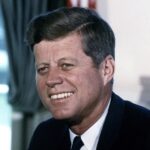
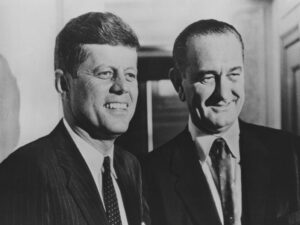 excellent leadership [that] contributed to the saving of several lives and was in keeping with the highest traditions of the United States Naval Service.”
excellent leadership [that] contributed to the saving of several lives and was in keeping with the highest traditions of the United States Naval Service.”
Of course, the rest is history. John F Kennedy went on to become the 35th President of the United States, and on November 22, 1963, Kennedy was assassinated in Dallas. His vice president, Lyndon B Johnson, assumed the presidency upon Kennedy’s death.
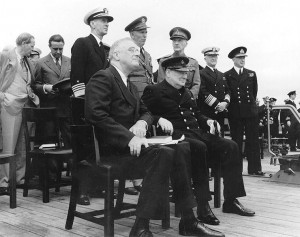
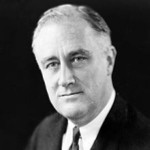
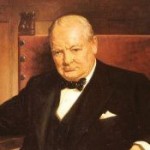 In a military operation, especially as part of a war, absolute secrecy is vital. Those involved with the planning have to know that they can trust everyone who is around them. One of the most important operations of World War II was the D-Day attack…Operation Overlord. Success was vital, and failure was simply not an option, no matter how many men were lost. The attack on Pearl Harbor had finally drawn the United States into World War II, and now we were in it to win it.
In a military operation, especially as part of a war, absolute secrecy is vital. Those involved with the planning have to know that they can trust everyone who is around them. One of the most important operations of World War II was the D-Day attack…Operation Overlord. Success was vital, and failure was simply not an option, no matter how many men were lost. The attack on Pearl Harbor had finally drawn the United States into World War II, and now we were in it to win it.
The success of any mission is found in the planning, so in August 1943, Franklin D Roosevelt and Winston Churchill met in Quebec for the first of two meetings code-named “Quadrant.” Technically, the meeting was the first of two “Quebec Conferences.” The meetings couldn’t even officially talk about the name of the actual operation, “Operation Overlord, which was later known as D-Day to the world. The Americans and the Brits had differences of opinion as to just how the operation was to be handled, but in order to make this operation work, they would have to be in complete agreement, and the mission would have to be kept completely covert!! No one could know the details.
Everyone, from the top men down to the paper supplier was screened to make sure of their loyalties. No stone was left unturned. If any information was leaked, thousands of men could die, and the fate of the world could have been severely compromised. Nevertheless, something was “missed” somehow. A young Canadian named Émile Couture was in charge of stationery supplies that fateful day, and in reality, he had no intention of being a traitor or playing any other nefarious part in the leak of information into the operation. Nevertheless, he managed to walk out of those meetings with the tactical plans for the invasions. It wasn’t even accidental…exactly.
Roosevelt and Churchill were excellent strategists, and their very detailed plans were perfectly laid out. The operation was going to be an amazing success. Now, all they had to do was to keep everything secret until the actual day, as yet unnamed, of the operation. The plans included detailed listings of Allied military assets to be used in the landings…the number of planes, combat cars, ships, and ground soldiers. They only had to keep it very quiet, because the leak of this information could have turned the tide of the war in favor of the Axis powers, and had that happened, our world would be vastly different even from the strange world we are experiencing today. Sergeant Major Émile Couture had been tasked with cleaning up after the meetings and instructed to make sure nothing was left behind.
Couture was doing his job in a meticulous fashion, but while cleaning an office on the third floor of the hotel, he discovered a leather portfolio that was inscribed “Churchill-Roosevelt, Quebec Conference, 1943. Maybe he thought it was just an empty portfolio, and so thought he could actually have an amazing souvenir of such a monumental meeting. Just think of the stories he could tell his children and grandchildren about the time he got to help out with such an important meeting between two of the most important men if his time. History doesn’t really tell us what he was thinking, but he decided to keep the portfolio as a souvenir without realizing what was actually in the portfolio. 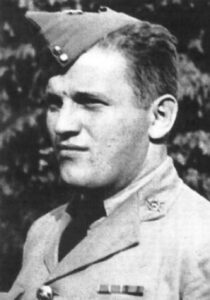 Couture walked out of the Château Frontenac without anyone being any the wiser and drove to the cottage where he was living with his cousins in Lac-Beauport just a few miles outside of Quebec City. Then he took time to examine his “treasure” only to find that he could actually be tried for treason. Couture was more than frightened. He was terrified, and he hid the files under his mattress overnight.
Couture walked out of the Château Frontenac without anyone being any the wiser and drove to the cottage where he was living with his cousins in Lac-Beauport just a few miles outside of Quebec City. Then he took time to examine his “treasure” only to find that he could actually be tried for treason. Couture was more than frightened. He was terrified, and he hid the files under his mattress overnight.
In the morning, knowing that he would have to face the music, he took the portfolio and its files to his superior, Brigadier Edmond Blais. Blais told Couture to go home and wait. He would be dealt with in the morning. Couture could have been put in prison for the remainder of the war in order to make certain that he did not leak the information he had seen. He was, after all, a low-ranking soldier, and shouldn’t have access to such top-secret information. Instead, he was sent home after being questioned by Scotland Yard and the FBI.
Whether Couture was terrified to say anything, or just an honorable soldier, he never leaked the information he had seen. Blais must have liked Couture, because he sent a letter on August 28, 1943, in which he recommended the Sergeant Major Émile Couture be awarded “the greatest accomplishment that can be given an NCO (non-commissioned officer).
On June 6, 1944, the Allies staged the largest amphibious military landing in history. Always remembered as D-Day, Operation Overlord saw 150,000 troops hit the beaches of Normandy, push back the German army and set the course for the eventual victory of the Allied forces. The secret of D-Day was kept, and the operation went off without a hitch.
Couture was rewarded for his discretion during a ceremony in September 1944, when he was commended for his actions by being granted a British Empire Medal. During the ceremony, there was no mention of what Couture had actually done to merit the award other than “services rendered.” I wonder if anyone thought that odd. Nevertheless, they really couldn’t tell, because it would have been embarrassing to the military for the public to see how easily someone walked out of the hotel with top secret documents.
Couture’s daughter, Anne Couture, insists that her father never told anyone. But someone did leak the story, and Couture became the center of the media’s attention. He gave several interviews over time, but he never told anyone whose office he had been cleaning when he found the documents or who he thought might have left them there. Though, Anne admits, he may have told her mother. If he did, Georgette Larochelle isn’t telling anyone, and in an effort to clear the record concerning her husband’s involvement in the whole incident. She has turned over all the memorabilia and documentation the family has kept over the years. It has all been donated to the Royal Museum and has been displayed in an exhibit since the 75th anniversary of the 2nd 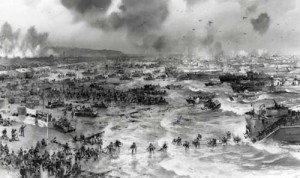
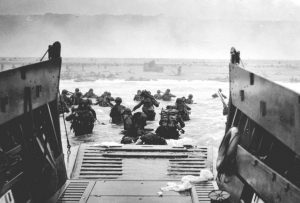 Quebec Conference.
Quebec Conference.
According to the museum’s director and curator, the documents are “convincing and some of the artifacts are considered invaluable” to the museum. He called the personal items which were specially made for the conference, “a great witness of this event of national significance.”
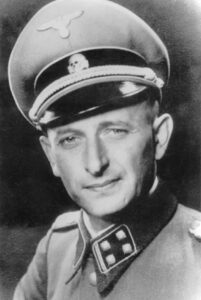 Following the end of World War II, many members of the Third Reich fled Germany, and relocated to Argentina this had all been planned as it became more and more clear that the Nazi Regime would not be successful. The ultimate plan was to lay low for a while, and then form a new Third Reich, or more likely the Fourth Reich. The main figures of the Third Reich were given new identities and smuggled out as soon as they could. It is unknown just exactly how many made it out, but files discovered in Argentina reveal the names of 12,000 Nazis who lived there in the 1930s, many of whom had Swiss bank accounts.
Following the end of World War II, many members of the Third Reich fled Germany, and relocated to Argentina this had all been planned as it became more and more clear that the Nazi Regime would not be successful. The ultimate plan was to lay low for a while, and then form a new Third Reich, or more likely the Fourth Reich. The main figures of the Third Reich were given new identities and smuggled out as soon as they could. It is unknown just exactly how many made it out, but files discovered in Argentina reveal the names of 12,000 Nazis who lived there in the 1930s, many of whom had Swiss bank accounts.
The Jewish people were understandably furious at not only the atrocities that their people had been subjected to, but the fact that with the escape, the fact is that many of the Nazi criminals would never answer for what they did, much less be punished for those atrocities. Nevertheless, the initial intent was to seek justice.
So, on December 13, 1949, Mossad was established. It later became the Institute for Intelligence and Special Operations. While Mossad has many uses today, it was primarily designed to go out and get the war criminals who were in hiding in Argentina and other parts of South America, 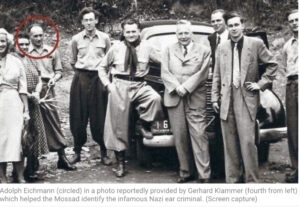 where there was no extradition. Mossad planned to go in without authorization, kidnap the Nazi war criminals, and take them to Israel to stand trial.
where there was no extradition. Mossad planned to go in without authorization, kidnap the Nazi war criminals, and take them to Israel to stand trial.
Some people may assume that Israel’s vaunted Mossad intelligence service devoted a great deal of energy to hunting for Nazis to seek revenge for the Holocaust. That was not the case. The desire to bring the murderers of Jews to justice was not deemed as important to Israel’s leaders in the early years of statehood as more pressing issues directly effecting the nation’s security. One of those issues, was preventing Nazis who went to Egypt from aiding in Nasser’s development of missile technology.
There were a few of the war criminals that the Mossad brought to Justice. One well known criminal was Adolf Eichmann, the man who engineered the Final Solution. His “contribution” to the atrocity that was the Holocaust was one of the most heinous. In 1960, Mossad tracked Eighmann to his home in Argentina, kidnapped him, and brought 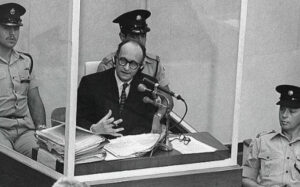 him to trial in Israel. He was convicted of war crimes and was actually the only person ever sentenced to death in Israel. The Argentinian government was furious because their no extradition policy was violated by Mossad. The immediately demanded that Israel return Eichmann, and then asked for reparations for Eichmann’s seizure by Mossad agents in Buenos Aires. Nevertheless, on August 2, 1969 the dispute was resolved by Israel keeping Eichmann, but acknowledging that Argentina’s fundamental rights had been infringed upon. No further repercussions were given.
him to trial in Israel. He was convicted of war crimes and was actually the only person ever sentenced to death in Israel. The Argentinian government was furious because their no extradition policy was violated by Mossad. The immediately demanded that Israel return Eichmann, and then asked for reparations for Eichmann’s seizure by Mossad agents in Buenos Aires. Nevertheless, on August 2, 1969 the dispute was resolved by Israel keeping Eichmann, but acknowledging that Argentina’s fundamental rights had been infringed upon. No further repercussions were given.

 In December of 2006, some 10,000 US researchers signed a statement protesting about political interference in the scientific process. In other words, the politicians were manipulating the scientific outcomes of research in order to sell their own agenda to the people. The statement, which included the backing of 52 Nobel Laureates, demanded a restoration of scientific integrity in government policy. These scientists were tired of being forced to have their research line up with the outcome that the government wanted. According to the American Union of Concerned Scientists, their research data is being misrepresented for political reasons. The statement claims that scientists working for federal agencies have been asked to change data to fit policy initiatives. Basically, these scientists are whistle blowers, who stand to lose their funding because they won’t play ball anymore, but science whose outcome is manipulated by politics isn’t science anymore anyway, is it.
In December of 2006, some 10,000 US researchers signed a statement protesting about political interference in the scientific process. In other words, the politicians were manipulating the scientific outcomes of research in order to sell their own agenda to the people. The statement, which included the backing of 52 Nobel Laureates, demanded a restoration of scientific integrity in government policy. These scientists were tired of being forced to have their research line up with the outcome that the government wanted. According to the American Union of Concerned Scientists, their research data is being misrepresented for political reasons. The statement claims that scientists working for federal agencies have been asked to change data to fit policy initiatives. Basically, these scientists are whistle blowers, who stand to lose their funding because they won’t play ball anymore, but science whose outcome is manipulated by politics isn’t science anymore anyway, is it.
In the statement the Union released, it included an “A to Z” guide that it says documents dozens of recent allegations involving censorship and political interference in federal science, covering issues ranging from global warming to sex education. When Congress won’t stand up for scientific integrity, it left the door open for the White House to censor the work of agencies like the Environmental Protection Agency and the Food and Drug Administration. Dr Peter Gleick, president of the Pacific Institute for Studies in Development, Environment and Security said, “It’s very difficult to make good public policy without good science, and it’s even harder to make good public policy with bad science. In the last several years, we’ve seen an increase in both the misuse of science, and I would say an increase of bad science in a number of very important issues; for example, in global climate change, international peace and security, and water resources.”
The statement released at the American Geophysical Union’s Fall Meeting…the annual gathering of Earth scientists, triggered a major row when a discussion resulted in the renowned US space agency climate scientist Dr James Hansen claimed that he had come under pressure not to talk to the media on global warming issues. Michael Halpern from the UCS said the statement of objection to political interference had been supported by researchers regardless of their political views. Halpern said, “This science statement that has now been signed by the 10,000 scientists is signed by science advisers to both Republican and Democratic administrations dating back to President Eisenhower, stating that this is not business as usual and calling for this practice to stop.” 
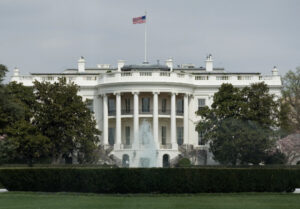 With the statement of objection, the Union expressed a hopefulness that the new Congress taking office that January would show a greater commitment to protecting the integrity of the scientific process. Unfortunately, I don’t think that has been the case with that Congress, nor with any others. Manipulating science to control the population seems to be the political way of doing things.
With the statement of objection, the Union expressed a hopefulness that the new Congress taking office that January would show a greater commitment to protecting the integrity of the scientific process. Unfortunately, I don’t think that has been the case with that Congress, nor with any others. Manipulating science to control the population seems to be the political way of doing things.
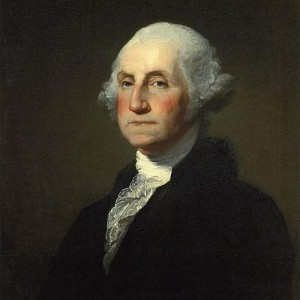
 These days, when a president or other elected official is inaugurated, the ceremony is often followed that evening by an inaugural ball. In fact, it is pretty much expected, like the celebration of victory after a long, hard-fought battle. When our first president, George Washington was sworn into office as the first president of the United States, on the balcony of Federal Hall in New York City, New York, on April 30, 1789, all tradition concerning elections was brand new. Our country was still trying to figure out what our traditions would be at that point.
These days, when a president or other elected official is inaugurated, the ceremony is often followed that evening by an inaugural ball. In fact, it is pretty much expected, like the celebration of victory after a long, hard-fought battle. When our first president, George Washington was sworn into office as the first president of the United States, on the balcony of Federal Hall in New York City, New York, on April 30, 1789, all tradition concerning elections was brand new. Our country was still trying to figure out what our traditions would be at that point.
A week later, on May 3, 1789, George Washington attended a ball in his honor. These days inaugural balls are planned and held with every inauguration. In fact, most presidents attend several balls on inauguration night. Still, in 1789, they were brand new, and it would be another decade before the practice was revived, with the inaugural of James Madison, the fourth president. Dolley, President Madison’s wife, threw a gala for 400 people at Long’s Hotel in Washington. Tickets cost $4.00, which would have amounted to about $100.00 today. That was actually very reasonable, considering that they run about $350.00 today. I suppose that if you were part of high society, you would think nothing of that amount for a ball which would show your support of the new president, as well as, your position in society.
Since Madison’s inaugural ball, the events have become more or less a quadrennial presidential fixture. Today, we think nothing of the event, assuming that it is just part of the grand tradition of our electoral process and seating a new president. Nevertheless, there have been years that the Inaugural Ball has been cancelled. Woodrow Wilson, in 1913, and Warren Harding, in 1921, both passed up balls, citing the need to economize. Franklin Pierce canceled his in 1853 because of the recent death of his son. President Franklin D Roosevelt was another exception, choosing to work through the night rather than attend his first inaugural ball in 1933. He canceled the next three galas because of the Depression and World War II. 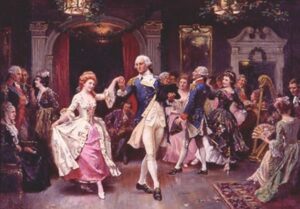
At the first ball, Washington danced with many ladies who were considered the cream of New York society. New York was the temporary site of the newly established federal government. Eliza Hamilton, wife of Alexander Hamilton, the treasury secretary, recorded her impressions in her memoirs. She wrote that Washington liked to dance the minuet, a dance she thought was “suited to his dignity and gravity.” In what would seem strange today, Martha Washington apparently did not attend the Inaugural Ball. One month to the day of her husband’s departure for New York, Martha Washington set out on her own triumphant trip to the seat of the new government, thereby becoming our first, First Lady.
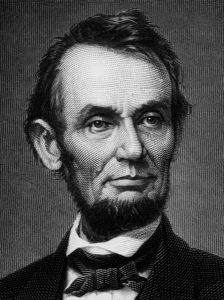
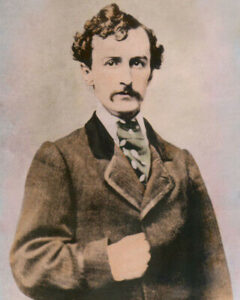 John Wilkes Booth was an actor, and as such, he had an expectation of applause following a performance. That is just what he thought the assassination of President Lincoln was. No, he didn’t think it was fake. He knew he was murdering the President of the United States, but he somehow thought people would consider it one of his greatest performances…the crowning moment of his stage career. It never occurred to him that the people who had loved him as an actor would suddenly turn against him.
John Wilkes Booth was an actor, and as such, he had an expectation of applause following a performance. That is just what he thought the assassination of President Lincoln was. No, he didn’t think it was fake. He knew he was murdering the President of the United States, but he somehow thought people would consider it one of his greatest performances…the crowning moment of his stage career. It never occurred to him that the people who had loved him as an actor would suddenly turn against him.
At the very least, he expected to be greeted with applause and support by those sympathetic to the Confederacy. Instead, he found, much to his shock and great dismay, that he was a hounded man, and few wanted to associate with him. Oh, the loyalists to the Confederacy did their duty by him, but with great reluctance. He first encountered this reaction when he and David Herold, who was an American pharmacist’s assistant and Wilkes accomplice in the assassination of Abraham Lincoln, stumbled upon a man in the dark, while searching for the home of Colonel Cox. The man, a local named Oswell Swann, reluctantly agreed to guide then to the Cox home, but only if he received payment for his services. He considered it just reward for the risk he was taking. Afterward, Swann collected his fee and vanished into the night, leaving the fugitives to the “hospitality” of Colonel Cox. That “hospitality” consisted of a few supplies, including whiskey, and a servant to lead the men to a hiding place in the woods. Cox certainly didn’t want these men to be found in his house.
Cox informed Booth that he was to “remain hidden in the woods until contacted.” Then Cox sent for Thomas Jones, a Confederate agent with experience in smuggling spies and information across the Potomac River into Virginia. Jones agreed to get them out and guide them across the Potomac, for a fee, but when he visited the fugitives in the woods, where they hid in a pine thicket, he told them it would be several days before he could do so. The manhunt for Booth and Herold was massive. Federal troops combed the area, searching properties and interrogating citizens over whether they had seen two men traveling together. Booth was very distressed, because instead of receiving the expected support and appreciation of the south, Booth found himself confined to a pine thicket!! Jones provided the men with newspapers, from which Booth discovered that he was widely considered a villainous murderer, rather than the Confederate hero he had expected to be. He wrote about his “horrible” fate, and the “injustice” of it all, in a diary he kept in an appointment book.
Federal authorities had most of the conspirators who had planned to kidnap Abraham Lincoln in custody by April 20, 1865. Several were not party to the assassination, but because they were involved in the kidnapping plans, they were held anyway. Three men were still not in custody…Booth, Herold, and John Surratt remained at large. The War Department put out wanted poster, released in Washington on April 20, offering a $50,000 reward for Booth, and $25,000 apiece for Herold and Surratt. By then, Surratt was hiding out in Canada, even though he knew that his mother was being held in federal custody. Coward that he was, Surratt was making plans to flee to Europe. Booth and Herold continued to cower in a pine thicket, relatively helpless. They didn’t dare leave, because they would be seen and immediately arrested. A dejected Booth spent his time drinking whiskey and scribbling in his makeshift diary over the unfairness of his reception. He believed his action had made him a martyr to the Confederate cause.
When the fugitives finally attempted to cross the Potomac, on about April 21, Jones’s guidance consisted of verbal instructions directing them to a waiting boat. These men had no boating experience, and the night was windy. The tides and swift current didn’t help matters either. Nor did the gunboats in the area. Booth whined into his diary, “last night being chased by gunboats till I was forced to return wet, cold, and starving.” Needless to say, the crossing was a failure, but Booth’s overly dramatic entry exaggerated what may have been an encounter with USS Juniper, positioned in the river near their point of crossing. Juniper’s log did not include a report of chasing anything that night. Booth likely spotted the gunboat, and in a panic, returned to the Maryland shore. Booth’s fugitive days ended when he was caught on April 26, 1865, near Port Royal, Virginia. As Booth and his co-conspirator, David Herold, cowered inside a barn, the soldiers demanded that they surrender. John Wilkes Booth died in agonizing fashion at the hands of Union soldiers in Port Royal, Virginia, 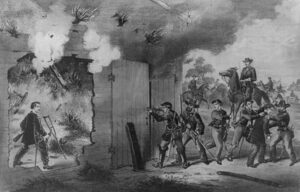
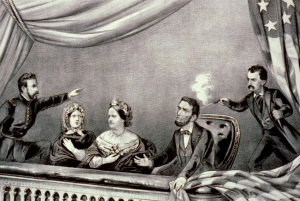 two weeks after he assassinated Abraham Lincoln. When the Union soldiers demanded their surrender, Herold complied. But Booth refused. He didn’t leave the barn until one of the soldiers set it on fire. As he tried to sneak out in the shadows and flame, a shot cracked through the silent night…and found its mark. Booth briefly held on to life, but in the end, the bullet would be his demise…in true disgraced style.
two weeks after he assassinated Abraham Lincoln. When the Union soldiers demanded their surrender, Herold complied. But Booth refused. He didn’t leave the barn until one of the soldiers set it on fire. As he tried to sneak out in the shadows and flame, a shot cracked through the silent night…and found its mark. Booth briefly held on to life, but in the end, the bullet would be his demise…in true disgraced style.
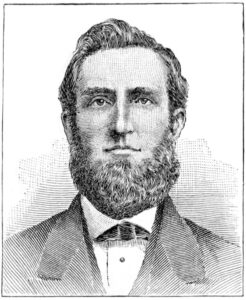
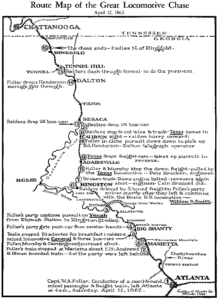 During the Civil War, things like supply lines and lines of communication were crucial to both sides. The railroads became an important asset, as well as a liability, to both sides, depending on what they were carrying and where it was headed. On April 12, 1862, volunteers from the Union Army, led by civilian scout James J Andrews, commandeered a train called The General, and took it northward from Georgia toward Chattanooga, Tennessee. En route, they did as much damage as possible to the vital Western and Atlantic Railroad (W and A) line from Atlanta to Chattanooga. They were pursued for 87 miles by Confederate forces, trying at first to keep up on foot, and later resorting to a succession of locomotives, including The Texas.
During the Civil War, things like supply lines and lines of communication were crucial to both sides. The railroads became an important asset, as well as a liability, to both sides, depending on what they were carrying and where it was headed. On April 12, 1862, volunteers from the Union Army, led by civilian scout James J Andrews, commandeered a train called The General, and took it northward from Georgia toward Chattanooga, Tennessee. En route, they did as much damage as possible to the vital Western and Atlantic Railroad (W and A) line from Atlanta to Chattanooga. They were pursued for 87 miles by Confederate forces, trying at first to keep up on foot, and later resorting to a succession of locomotives, including The Texas.
Known as The Great Locomotive Chase, the military raid was also called the Andrews’ Raid or Mitchel Raid (after Major General Ormsby Mitchel, who had earlier assisted in the capture of Nashville and accepted the surrender of the city). In the end, as often happens in escapades like this, the raid made sensational headlines in newspapers, but it really had little impact on the war. It didn’t stop supply lines for the South or start new ones for the North.
In February, the Union soldiers captured Fort Henry and Fort Donelson, and Confederate General Albert Sidney Johnston knew he had to withdraw his forces from central Tennessee to reorganize. Johnston evacuated Nashville on February 23rd, and Nashville became the first Confederate state capital to fall to the Union. For Major General Don Carlos Buell, the taking of Nashville was enough, and on March 11th, Buell’s army was merged into the new Department of the Mississippi under General Henry Halleck. It was then that James J Andrews, a Kentucky-born civilian serving as a secret agent and scout in Tennessee approached Buell with a plan to take eight men to steal a train in Georgia and drive it north. Buell authorized the expedition in August 1863. Andrews, a train engineer in Atlanta, was willing to defect to the Union with his train, and without Andrews, taking over the train would have proved difficult. Getting onboard would have been easy enough, but running the train without experienced personnel is next to impossible. Since Andrews was willing to defect, he might also be able to supply a volunteer train crew to assist in running the train, tearing up track, and burning 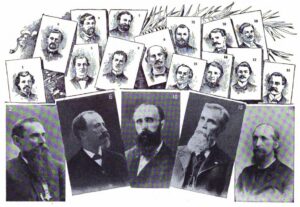 bridges, so they would have an even greater chance of succeeding. The main target of the operation was the railway bridge at Bridgeport, Alabama, but Andrews had several other bridges in Georgia and Tennessee in mind too. Some of the men from Major General Mitchel’s division, encamped at Murfreesboro, Tennessee, were tapped to be the volunteers for this first raid.
bridges, so they would have an even greater chance of succeeding. The main target of the operation was the railway bridge at Bridgeport, Alabama, but Andrews had several other bridges in Georgia and Tennessee in mind too. Some of the men from Major General Mitchel’s division, encamped at Murfreesboro, Tennessee, were tapped to be the volunteers for this first raid.
The group of raiders moved south forty miles on foot to the Confederate railhead at Tullahoma. Then the caught a train to Marietta, Georgia. It was then that the operation hit its first snag, when Andrews discovered the engineer had been pressed into service elsewhere. Upon inquiring if any of the raiders knew how to operate a locomotive, they found that none did, and the raid was called off. Two raiders were also confronted by Confederate soldiers while trying to cut the telegraph lines, but successfully pretended to be overworked wiremen. Then the raiders returned north to Union lines, arriving about a week after they had departed. Andrews spent several days rearranging the operation and conducting reconnaissance on the Western and Atlantic Railroad before he headed north to federal lines too. The original raiders all refused to volunteer for the second raid, fearing the enemy. One said that “he felt all the time he was in the enemy’s country as though he had a rope around his neck.”
While the first raid was a bust, the second raid went off pretty well. The General was taken while the crew was a breakfast at the Lacey Hotel in Atlanta, and despite all the efforts to catch them, it arrived at milepost 116.3, north of Ringgold, Georgia, just 18 miles from Chattanooga and out of fuel. Andrews’s men abandoned The General and scattered. Andrews and all of his men were caught within two weeks. They even caught two volunteers who had the hijacking. Mitchel’s attack on Chattanooga was a failure.
All of the raiders were charged with “acts of unlawful belligerency.” The civilians among them were charged as unlawful combatants and spies. They were tried in military courts or courts-martial. Andrews was tried in 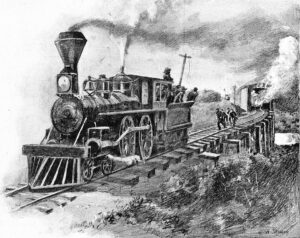
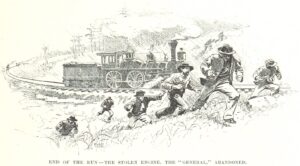 Chattanooga, found guilty, and hanged on June 7 in Atlanta. Seven others were transported to Knoxville and convicted as spies. They were returned to Atlanta and were hanged too. Their bodies were buried unceremoniously in an unmarked grave. Those bodies were later reburied in Chattanooga National Cemetery.
Chattanooga, found guilty, and hanged on June 7 in Atlanta. Seven others were transported to Knoxville and convicted as spies. They were returned to Atlanta and were hanged too. Their bodies were buried unceremoniously in an unmarked grave. Those bodies were later reburied in Chattanooga National Cemetery.

